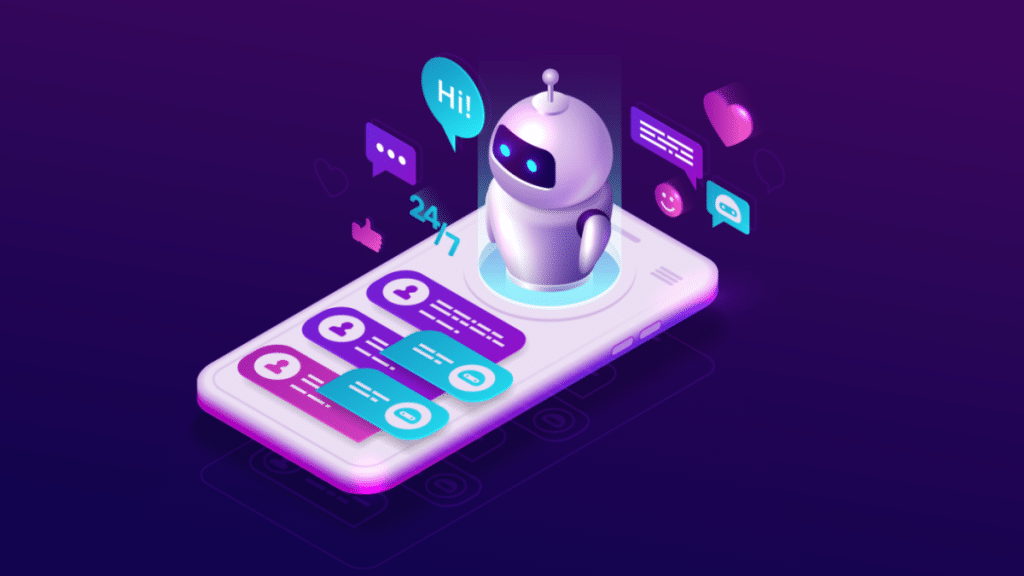In today’s digital age, customer engagement in marketing has taken on new dimensions, largely influenced by advancements in technology. One of the most notable innovations enhancing this interaction is the use of chatbots. These automated helpers are changing how businesses communicate with their audience online. By providing instant responses and personalized interactions, chatbots not only streamline customer service but also boost engagement levels in digital marketing strategies. Let’s explore how these virtual assistants are reshaping the landscape of customer engagement.
How does digital marketing benefit from automation?
Digital marketing thrives on automation, leveraging tools like chatbots to streamline processes and enhance efficiency. These automated systems allow businesses to engage with customers promptly and effectively, whether it’s through instant responses to inquiries, personalized recommendations based on user behavior, or round-the-clock availability for support. By automating repetitive tasks and responses, chatbots free up human resources to focus on more strategic initiatives, ultimately improving overall campaign effectiveness and customer satisfaction. This integration of automation not only saves time and resources but also ensures a consistent and responsive customer experience across various digital channels.z
What role does AI play in streamlining Digital Marketing?
AI plays a pivotal role in streamlining digital marketing, particularly in improving customer response time. By harnessing AI-powered tools and algorithms, businesses can analyze vast amounts of customer data in real-time. This capability enables them to anticipate customer needs and preferences more accurately, leading to personalized marketing campaigns and quicker responses to inquiries. AI also automates tasks like data processing, segmentation, and even content creation, allowing marketers to allocate their time more strategically. As a result, companies can enhance customer engagement by delivering timely and relevant content, ultimately fostering stronger relationships and driving higher conversion rates.
How can automation improve customer response time?
Automation significantly enhances customer response time in digital marketing by streamlining communication processes and ensuring prompt interactions. Here are a few ways it achieves this:
- Instant Responses: Automated systems like chatbots can provide immediate answers to common customer queries, reducing wait times and improving satisfaction.
- 24/7 Availability: Automation enables round-the-clock customer support, catering to global audiences across different time zones without delays.
- Personalization: AI-driven automation can analyze customer data in real-time to deliver personalized responses and recommendations, enhancing engagement.
How is customer engagement shaped by conversational marketing?
Customer engagement is profoundly influenced by conversational marketing, which focuses on creating personalized, dialogue-driven interactions between brands and consumers. Unlike traditional marketing approaches that are one-directional, conversational marketing fosters real-time conversations through channels like live chat, messaging apps, and chatbots. This approach allows businesses to engage with customers on a more personal level, addressing their queries promptly, providing tailored recommendations, and building relationships based on trust and immediate feedback. By humanizing interactions and offering instant support, conversational marketing not only enhances customer satisfaction but also drives conversions by guiding prospects through a more interactive and responsive buying journey.
How can faster customer response time enhance engagement?
Faster customer response time plays a crucial role in enhancing engagement by meeting modern consumers’ expectations for immediacy and responsiveness. When businesses respond promptly to inquiries, feedback, or issues raised by customers, it demonstrates attentiveness and a commitment to customer satisfaction. This quick turnaround not only prevents frustration and potential customer churn but also fosters a positive perception of the brand. Moreover, fast responses in digital interactions can lead to more meaningful conversations, where customers feel valued and are more likely to engage further with the brand. Ultimately, by prioritizing fast customer response time, businesses can strengthen relationships, build loyalty, and improve overall engagement metrics in their digital marketing efforts.
What are the key advantages of using chatbots for customer interaction?
Using chatbots for customer interaction offers several key advantages in today’s digital landscape. Firstly, chatbots provide immediate responses to customer inquiries, ensuring round-the-clock availability and reducing wait times significantly. They also enhance efficiency by handling repetitive tasks such as FAQ responses and basic troubleshooting, freeing up human agents to focus on more complex issues or personalized interactions. Moreover, chatbots can deliver consistent and accurate information, ensuring a uniform brand experience across different customer touchpoints. Additionally, they contribute to cost savings by automating routine tasks and scaling customer support operations without proportional increases in staffing. Overall, chatbots not only streamline customer interactions but also enhance satisfaction levels by providing convenient, timely, and reliable service.
In conclusion, the integration of chatbots and automation into digital marketing strategies represents a transformative shift in enhancing customer engagement. By leveraging these technologies, businesses can meet the increasing demand for immediate responses, personalized interactions, and seamless customer experiences. Chatbots not only streamline communication processes but also enable brands to engage with customers more effectively, ultimately driving higher satisfaction and loyalty. As technology continues to evolve, embracing these innovations will be essential for staying competitive and meeting the expectations of today’s digitally savvy consumers.
